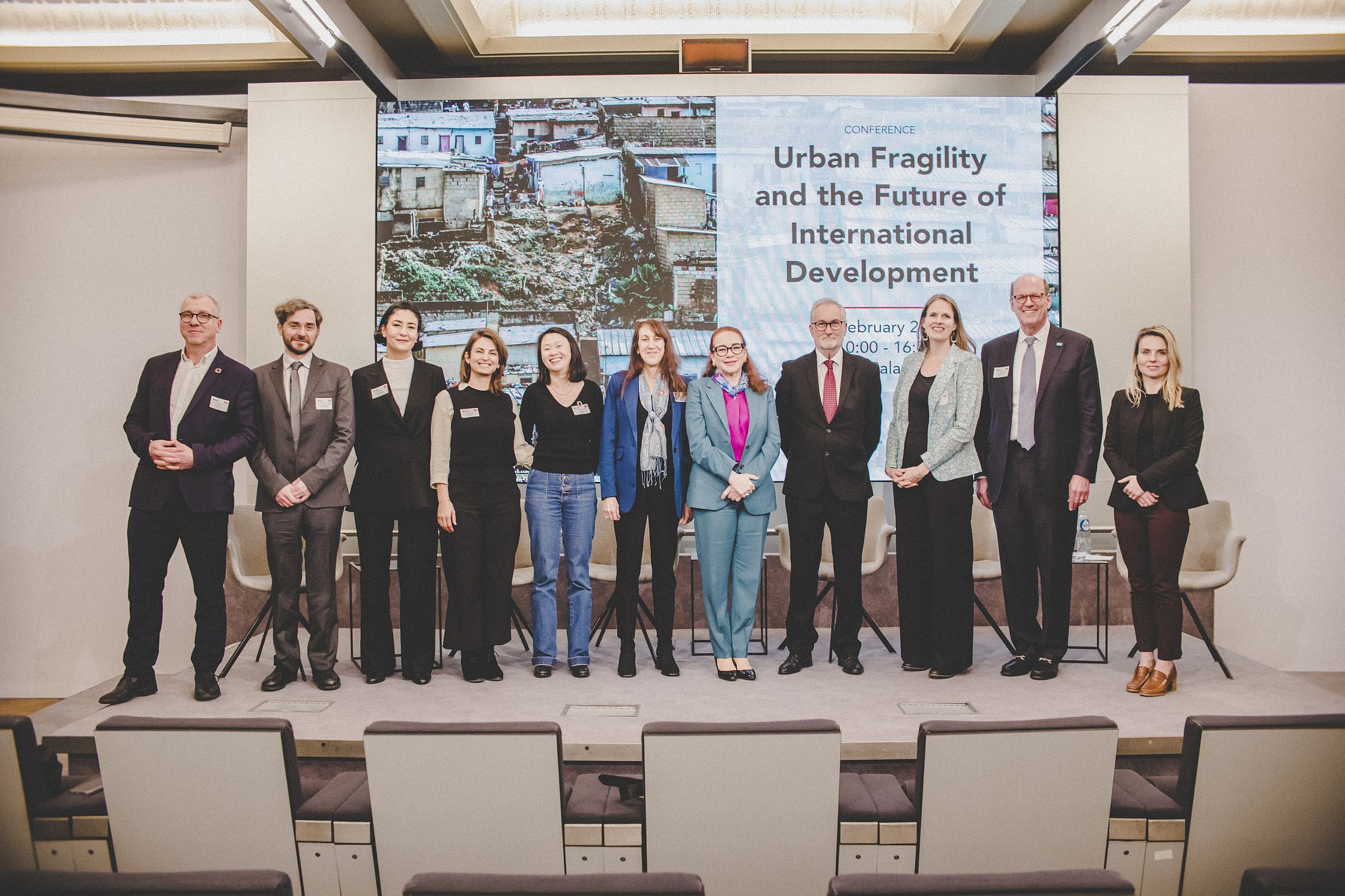Andrea Haefner, Carlo Schmid Intern at Cities Alliance, discusses the importance of locally collected data to inform global urban transformation processes in light of her experiences at the World Urban Forum 9. Her views are her own and do not reflect those of the Cities Alliance.
[16 March 2018] -- It was a Saturday morning in February, and we were halfway through the World Urban Forum (WUF) 9 in Kuala Lumpur. While welcoming visitors to the Cities Alliance booth, I spotted the first signs of fatigue in their eyes. I couldn’t blame them; the WUF was seven long, jam-packed days of plenary sessions, presentations and bilateral meetings to discuss the implementation of the New Urban Agenda. It was wonderful but exhausting at the same time.
Suddenly, loud chanting spread through the exhibition halls. Heads turned, and people woke up as a group of dancing, laughing and singing men and women walked by. They were loud, they were colourful, they wore T-shirts stating “I am an urban poverty fighter” or “Hard data. Rich stories”. It was Slum Dwellers International (SDI), Cities Alliance’s long-term partner, announcing their networking event on the Know Your City campaign, a joint initiative with UCLG-Africa which is supported by the Cities Alliance.
I was delighted by SDI’s enthusiasm and the attention it was drawing to a critical issue. Knowing your city might sound easy, but in fact the lack of local data is a challenge that communities face all over the world.
In many cases, the data collected by National Statistical Offices doesn’t reflect the realities on the ground, and city authorities often don’t have the capacity and resources to develop their own statistics. Information on informal settlements, where an estimated one quarter of the world’s urban population lives, is particularly scarce. No one knows how many people live in these neighbourhoods, and there is little reliable information on how they make a living, what their needs are, or what services are available.
This lack of city data prompts the question: How do you plan for a community without data? Well, you take alternative approaches, you get creative and you innovate.
It got me thinking. Through its Catalytic Fund, Cities Alliance has generated some innovative solutions that address data gaps in cities and use the collected information to enhance inclusive city planning.
For instance, you can:
-- Empower communities to profile, enumerate and map their own communities
-- Use alternative indicators, such as household trash, to estimate population size
-- Crowdsource data through a mobile phone app
-- Establish one-stop-shops to provide information to citizens on basic services
-- Use online platforms to enable citizens to send feedback and requests on municipal services
These are some examples projects the Cities Alliance has funded through its Catalytic Fund Call for Proposals “Know Your City – Information for Transformation.”
Back in September 2017, I had the privilege of meeting the ten grantees during a knowledge exchange in Brussels. They explained to us what helped them to know their city: Using innovative technology, combining different data types and sources, engaging local authorities, developing a strong communication strategy, and thinking strategically, among others. (Check out an overview of the knowledge exchange findings here.)
The grantees’ stories were exciting, and the lessons learned that they shared rich. Listening to them through one narrative was extremely powerful, and I wished others could experience the creativity and enthusiasm in the room.
Fast forward five months, and I had the chance. At the World Urban Forum, I saw two of the grantees I had met in September – SDI and SafetiPin – actively demonstrating the importance of locally collected data to inform wider urbanisation efforts.
Where everyone else was discussing the challenges of implementing the New Urban Agenda – how to connect the framework to local issues, or create the enabling environments to translate it into action – these organisations showed that they were already implementing.
Their voices made clear: If you want to succeed, you better make sure you know what is happening on the ground. You had better Know Your City!
Watch: Learning from our Catalytic Fund Grantees
Through its Catalytic Fund, Cities Alliance has generated some innovative solutions that address data gaps in cities and use the collected information to enhance inclusive city planning.
Related Items:




